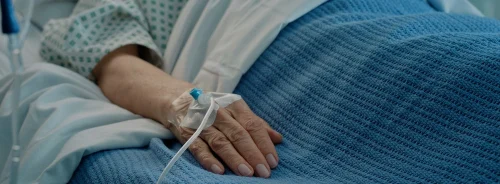ICU Management & Practice, ICU Volume 15 - Issue 1 - 2015
The Israeli Cardiac and Intensive Care Nursing Society is very active and includes a sub-group, the evidence-based nursing (EBN) ICU group. This group meets once a month. The participants include bedside nurses, researchers, educators and head nurses from general ICUs, open heart surgery, intensive cardiac care and cath labs. For the past 10 years we have chosen cutting-edge issues to investigate the evidence on topics like "What does the evidence say about tooth brushing to prevent VAP?" We performed a nationwide study to investigate the level of ICU nurses' knowledge of the evidence. The findings were published in 2009 (DeKeyser Ganz et al. 2009).
The group was not satisfied with the level of knowledge and was determined to close the gap between science and practice, so we launched a national nursing intervention to improve practice. Articles in the national nursing journal were published, in addition to a paper submitted to the health section of the national daily newspaper; the EBN group members presented up-to-date science at staff meetings, and even found a sponsor to donate toothbrushes to the ICUs. We repeated the same study two years later and found significant improvement in nurses’ knowledge regarding delivering mouth care using toothbrushes.
Other projects include translating and publishing sepsis and weaning guidelines in the national nursing journal. One group of nurses is working on an early identification for mechanical ventilation weaning readiness score that will be validated using all the ICUs in the country.
Every two years we host international nursing speakers at our conference, which adds colour and widens our range of topics. Together with our visiting speakers we develop multi-centre, multi-country research studies. One example is the UNIQUE study, which will investigate nursing practice and rituals of caring for the patient who has died, all over the world.
One of our proudest achievements is our involvement as principal investigators (PI) in ESICM multicountry studies. In the past years we have performed as PIs in APPROPICUS, CONFLICTICUS, FENICE, IMPRESS. Our team was very pleased when we registered to perform as PI in each study and we all received letters addressing us "Dear Dr….." It was the fastest track to accomplishing a PhD.
Nurses can be PIs in many types of studies and possess the knowledge and skills to lead trials in our hospital ICUs.
All of us in the ICU have been witnessing the significant evolution of end-of-life care. The literature is overflowing with descriptive studies demonstrating areas that need improvement in guideline development, education, communication and many others. The ICU nurses in Israel believe that we should be the leaders in addressing this issue. This was our motivating factor in developing a postgraduate ICU palliative course specifically focusing on the ICU patient population. This is a 114-hour course created by Dr. Freda Dekeyser-Ganz, Maureen Bennun and sponsored by our national nursing society chairwoman Ofra Raanan. The graduates of the first course have already found themselves in positions as palliative care leaders in their units and hospitals. They are regarded as experts in ICU and palliative care and have started interventions in their units.
We believe this is one of the ways palliative care will be disseminated to improve patient end-of-life care and advance family satisfaction. The second course has commenced and a third is opening soon.
We have created an Israeli-Palestinian nursing work group collaborating on professional issues like standardised protocols, knowledge exchange, and research projects.
Proactive leadership actions taken on by nurses can produce change. As a strong cohesive group of determined nurses we can transform and revolutionise Israeli ICU care delivered to our patients.
References:
DeKeyser Ganz F, Fink NF, Raanan O et al. (2009) ICU nurses’ oral-care practices and the current best evidence. J Nurs Scholarsh, 41(2): 132–8.






